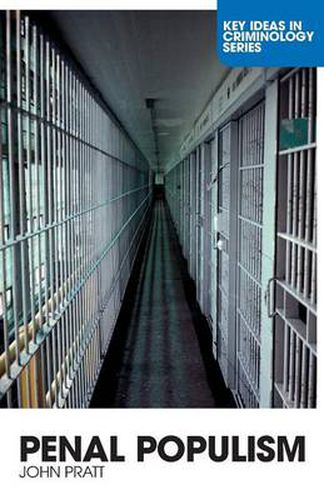Readings Newsletter
Become a Readings Member to make your shopping experience even easier.
Sign in or sign up for free!
You’re not far away from qualifying for FREE standard shipping within Australia
You’ve qualified for FREE standard shipping within Australia
The cart is loading…






Expertly drawing on international examples and existing literature, Penal Populism closes a gap in the field of criminology. In this fascinating expose of current crime policy John Pratt examines the role played by penal populism on trends in contemporary penal policy.
Penal populism is associated with the public’s decline of deference to the criminal justice establishment amidst alarm that crime is out of control. Pratt argues that new media technology is helping to spread national insecurities and politicians are not only encouraging such sentiments but are also being led on by them. Pratt explains it is having most influence in the development of policy on sex offenders, youth crime, persistent criminals and anti-social behaviour.
This topical resource also covers new dimensions of the phenomenon, including:
the changing nature and structure of the mass media
less reliance on the more orthodox expertise of civil servants and academics
limitations to the impact of populism, bureaucratic resistance from judges, lawyers and academics and the restorative justice movement.
This is essential reading for students, researchers and professionals working in criminology and crime policy.
$9.00 standard shipping within Australia
FREE standard shipping within Australia for orders over $100.00
Express & International shipping calculated at checkout
Expertly drawing on international examples and existing literature, Penal Populism closes a gap in the field of criminology. In this fascinating expose of current crime policy John Pratt examines the role played by penal populism on trends in contemporary penal policy.
Penal populism is associated with the public’s decline of deference to the criminal justice establishment amidst alarm that crime is out of control. Pratt argues that new media technology is helping to spread national insecurities and politicians are not only encouraging such sentiments but are also being led on by them. Pratt explains it is having most influence in the development of policy on sex offenders, youth crime, persistent criminals and anti-social behaviour.
This topical resource also covers new dimensions of the phenomenon, including:
the changing nature and structure of the mass media
less reliance on the more orthodox expertise of civil servants and academics
limitations to the impact of populism, bureaucratic resistance from judges, lawyers and academics and the restorative justice movement.
This is essential reading for students, researchers and professionals working in criminology and crime policy.